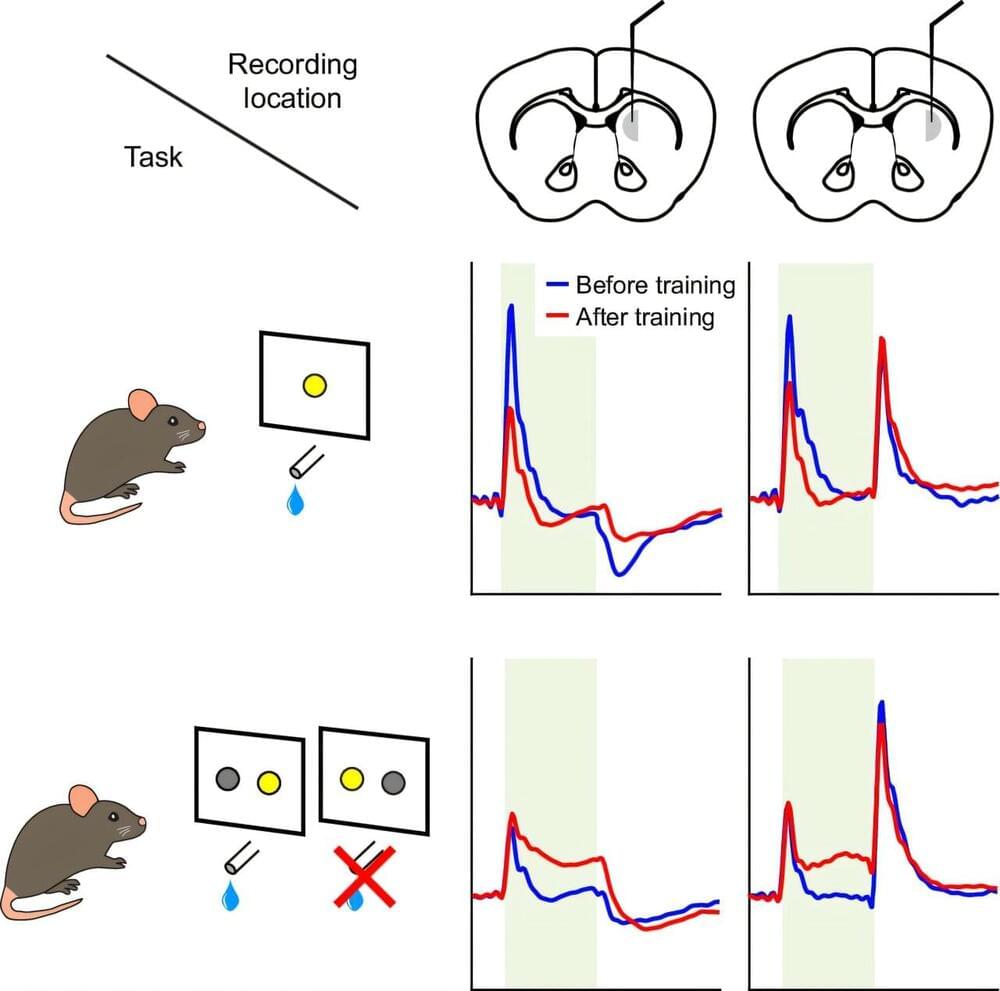Dopamine is a powerful signal in the brain, influencing our moods, motivations, movements, and more. The neurotransmitter is crucial for reward-based learning, a function that may be disrupted in a number of psychiatric conditions, from mood disorders to addiction.
Now, researchers led by MIT Institute Professor Ann Graybiel have found surprising patterns of dopamine signaling that suggest neuroscientists may need to refine their model of how reinforcement learning occurs in the brain. The team’s findings were published recently in the journal Nature Communications.
Dopamine plays a critical role in teaching people and other animals about the cues and behaviors that portend both positive and negative outcomes; the classic example of this type of learning is the dog that Ivan Pavlov trained to anticipate food at the sound of bell.
